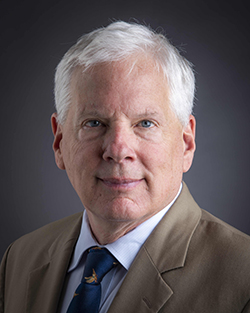
Photo courtesy of USDA.
Photo by Preston Keres
The University of Florida has named J. Scott Angle, director of the U.S. Department of Agriculture’s National Institute of Food and Agriculture, to lead the university’s Institute of Food and Agricultural Sciences (UF/IFAS) into the next decade. He is expected to assume the role as vice president for agriculture and natural resources on July 13.
Angle will oversee UF’s College of Agricultural and Life Sciences with more than 6,000 students, the Florida Cooperative Extension Service, and the Florida Agricultural Experiment Station’s network of research centers. The announcement ends a 10-month national search to lead one of the nation’s largest and most accomplished organizations of its kind.
“Dr. Angle is a nationally recognized leader in agricultural science and administration. His passion for science, natural resources and service to the community will advance our work toward feeding a growing world population while reducing our use of resources needed to do it,” UF President Kent Fuchs said. “During this critical time in Florida agriculture, he is the proven leader we need to adapt our traditional land-grant mission of teaching, research, and outreach to a 21st century context, contributing significantly to UF’s drive to be a top-five university.”
“Dr. Angle has a demonstrated record of innovative leadership,” said Michael Perri, dean of the UF College of Public Health and Health Professions and chair of the search committee. “His work has also driven scientific advances that underpin our state’s second-largest industry and customized Extension to the needs of each local community it serves.”
Angle spent more than 35 years in agricultural science and administration, including 25 years as a professor of soil science and administrator (Director of the Maryland Agricultural Experiment Station and Maryland Cooperative Extension) at the University of Maryland. His early work focused on the study of losses of nutrients from agro-ecosystems, and their impact on the Chesapeake Bay. He also studied the impact of heavy metals on the food chain with the goal of protecting our food supply from these harmful elements.
From 2005 to 2015, Angle served as dean and director of the College of Agricultural and Environmental Sciences at the University of Georgia. He is a fellow in the American Society of Agronomy and the Soil Science Society of America and a Fulbright Fellow having worked at the Rothamsted (Research) Experimental Station, in the United Kingdom. He subsequently served as president and CEO of the International Fertilizer Development Center (IFDC), an international public organization (IPO) dedicated to helping the poorest farmers of the world produce more food.
“My experience at NIFA gave me the opportunity to see university agriculture operations across the nation, and UF/IFAS is simply one of, if not the, best. Agriculture is changing faster than I have ever witnessed in my career,” Angle said. “Many challenges lie ahead, not the least of which is COVID-19, and its long-term implications for agriculture. UF/IFAS, however, is up to the challenge and I am honored to be at the helm during such an important time for agriculture.”
Not one to shy away from challenges, Angle recently oversaw the successful transition of NIFA operations from Washington, D.C., to Kansas City, Missouri, while ensuring mission continuity and service. UF/IFAS has been in transition mode during the coronavirus pandemic as well, pivoting quickly to remote learning and working, budgetary challenges and an industry in crisis.
“During my interview I noted that I thought UF/IFAS combines both applied science, teaching and extension with the basic sciences better than any other land-grant university in the world. It’s the intersection of these functions where impact is made, and few institutions can compare with UF/IFAS in local, state, national and global impact,” Angle added. “This is why I am so pleased to have been selected for this position. My wife, Kay, and I look forward to moving to Gainesville and becoming a part of the community.”
Scott Angle succeeds Jack Payne, who is retiring after 10 years in that position. During Payne’s tenure, CALS enrollment rose to record levels and faculty achieved a single-year record for grants and contracts. UF/IFAS built a honey bee lab, a professional development center, a biological station in Cedar Key, a teaching forest learning center, and a beef teaching unit headquarters among other advancements under Payne’s leadership.
 0
0
